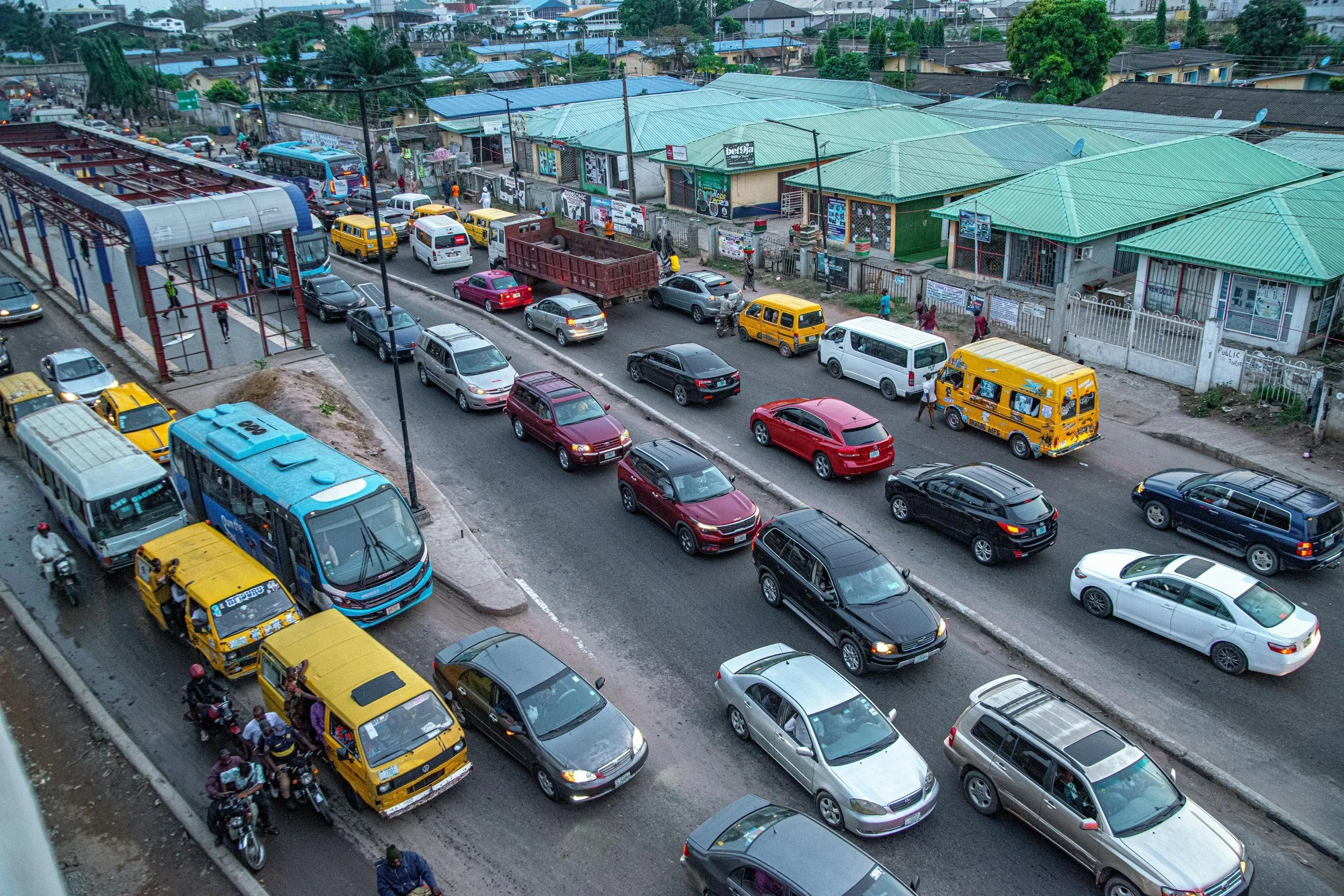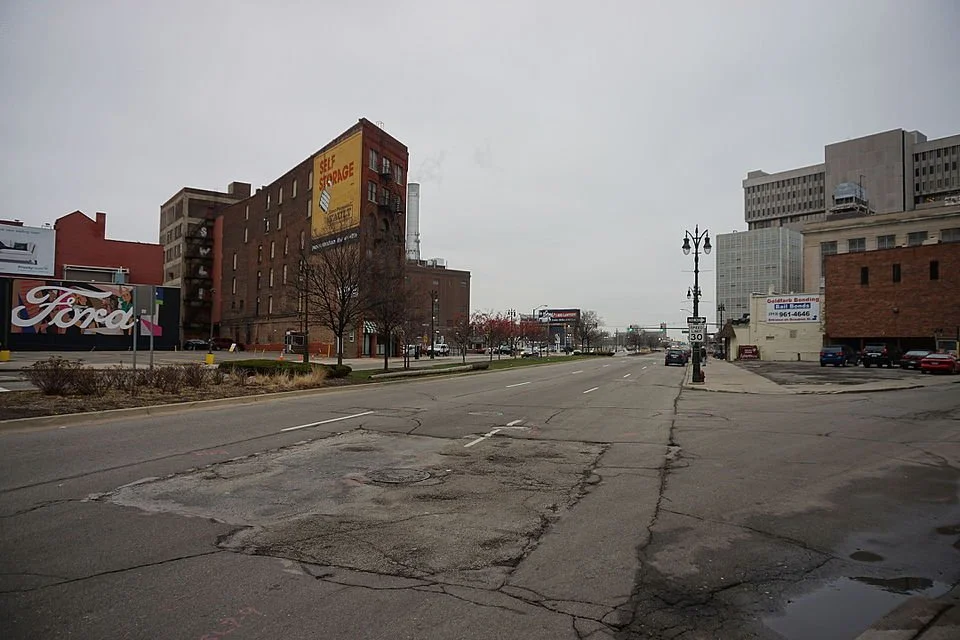We’ve Seen This Before: What Transport’s Past Teaches Us About AI’s Future
Dear Humanity,
It’s happening again.
A new technology, backed by vast wealth and ambition, is transforming the world - and it’s being deployed at such a blistering pace that it’s hard for the rest of us to keep up. ChatGPT may have been the fastest growing app in internet history but this isn’t a new phenomenon. We’ve seen this movie before, so what can we learn from last time?
You can’t stop people using it
AI, in the form popularised by Chat-GPT and others, has some spectacular downsides. It’s built on the institutional theft of copyrighted materials. It has a staggering carbon footprint (the worst estimates suggest that by 2035, AI will use more energy than India, the world’s most populous country), it encodes and regurgitates racism and sexism and it creates the real potential for psychological harm (and even suicide) as people use it for pseudo-therapy.
All those facts are true. Being blunt, it’s possible AI’s carbon footprint may well tip the balance between stopping uncontrolled climate change and failing. But, despite that, we can’t put the genie back in the bottle. People are going to use it, because it is useful.
We’ve been here before. The railways were not universally welcomed. They upended traditional communities. They accelerated migration to low paid, dangerous jobs in cities. Many people tried to keep railways out of their town or village.
The London & Birmingham Company was formed to promote the building of what we now call the West Coast Mainline on 17th September 1830, just two days after the opening of the world’s first passenger railway. Almost immediately, a protest meeting of country landowners was held along the route in Towcester, which voted unanimously that the railway would do “great injury” and was unnecessary as “there is already conveyance for travellers between London and Birmingham every day at the rate of ten miles an hour”. Someone at the meeting said that the railway would “spoil our Shires and ruin our Squires”.
Buses caught in Lagos traffic. Just 5% of Nigerians own a car.
But they couldn’t stop the railway, because the railway was useful. By 1860, railway mileage had grown 10,000% - both squires and shires were expendable.
The story was repeated with the private car. In 1910, there were around half a million cars globally. They were noisy, smelly and dangerous. But, for those that owned them, they were useful. Today there are a billion.
The car story is, in many ways, even more apposite: for cars are responsible, each year, for 3 gigatonnes (Gt) of CO2 emissions, almost 10% of total global emissions (not including manufacture or disposal). Petrol demand has fuelled wars. Cities are poisonous. Landscapes are no longer tranquil. And most of this to benefit the affluent — in the UK, 95% of owner occupiers have a car; one in three renters do not. In the most dangerous, polluted and congested cities of the Global South, cars are a minority luxury with the vast negative consequences born by everyone else.
Why on earth have we allowed this to happen? Because cars are just too useful.
It won’t regulate itself
The 19th-century British railway was punctuated by catastrophic crashes. The same safety measures - lock, block, brake - could have prevented nearly all of them. Yet despite the deaths, the profits and the clarity of the solutions, the private rail firms delayed.
Armagh rail disaster
Only after the 1889 Armagh disaster, when 88 people died (mostly children), did Parliament act. Lock, block, and brake became law. In 1901, the railway had its first year without killing anyone.
But the companies had started 70 years late, so tragedy still struck. On Christmas Eve 1910, an exhausted signaller forgot that Hawes Junction was already occupied and cleared an express onto the same line. The collision killed 12 passengers and burnt many more. When his replacement arrived, the signaller said (in one of the most sombre and most British quotes in railway history): “Would you go to Bunce and tell him I am afraid I have wrecked the Scotch Express.”
Had the railway companies acted responsibly from day one, Bunce would never have received that message. But they didn’t.
Nor will the AI companies. Have we had the first news story yet of someone killing themself as a result of Chat-GPT’s advice? I’m not sure. But we will. The insidious effect of hardcoded sexism and racism will be endemic but hard to prove. The catastrophic carbon impact would be easier to prove - but the companies don’t share the data.
“OpenAI” was founded as a non-profit lab with transparency in its mission. It’s literally in the name. But it became a for-profit business. Its billionaire CEO Sam Altman has nearly been fired by two Boards, both times for telling untruths. OpenAI releases no carbon data at all.
And it won’t. The railway companies were never going to make trains safe. Parliament needed to do it. Even in the most laissez-faire time and place the world has ever known (Victorian Britain), it was recognised that a powerful industry with monopolistic tendencies needs regulation. Guys, we’re there again.
Choose Tokyo, not Detroit
It’s a lesson from transport that needs to be heard: if we wish to minimise harms, we need intelligent regulation.
Gratiot Avenue, Detroit
In America, cities became sprawls built for cars. “Motor City” itself, Detroit, bent itself to serve the car - and hollowed itself out. 639,000 people in 142 square miles. Tokyo? 14 million in 847. 22 times as many people in just six times the space.
Japan made a conscious choice to do things differently. Since 1962, on-street residential parking has been banned. 88% of Tokyo journeys are by public transport, on 400 miles of passenger rail - unsubsidised because demand is so high. Tokyo is rich (on average, three times as rich per person as Detroit). Detroit went bankrupt.
Just as car firms encouraged us to redesign our cities, AI firms want us to redesign our lives. We have a choice. Japan isn’t car-free. It has a higher rate of car ownership than Britain. It just chose where cars add value and where they don’t - and regulated accordingly.
They didn’t do it straightaway. We need to see what AI can do. It’s still early. But there is an ideology coming out of the AI firms that says regulation is inherently harmful. We need to push back on this. We should thrive on the innovation being generated out of Silicon Valley, celebrate the human progress and then be ready to control it. Let’s live in Tokyo, not Detroit.
What if we’d taken on the car industry?
What if, a century ago, we’d recognised the emerging harms of cars - and acted? Our cities might be cleaner, quieter, healthier. Streets could be for children, not traffic. The air we breathe wouldn’t shorten lives. Public transport might be faster, better and cheaper: the first choice, not the last resort. We could have saved countless lives lost to crashes and pollution. Britain might have led the world in urban innovation. We might not be at risk of catastrophic climate change.
We had alternative futures then - and we have them now. The loudest voices belong to the AI firms, just as they once belonged to the car industry. But society is run for humans, by humans. The future isn’t inevitable. We get to choose.
With best wishes from,
Thomas
Next week, I’m going to look at what AI will do to jobs in the transport sector. You can read that here
I blog as a hobby but as a profession I support organisations like yours at the intersection of transport and innovation. Call me to see how I can help you.




